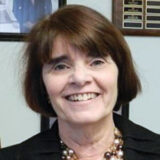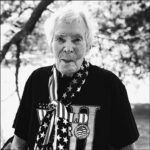By the Wayland Post Staff
A long-planned community forum on hate crimes and prevention became an emotional reckoning on race, trust, and transparency in Wayland on Nov. 10, when residents filled the Council of Aging/Community Center to confront officials about their response to the recent racial incident at Wayland High School.
The event, organized by the Human Rights, Diversity, Equity, and Inclusion Committee (HRDEIC) for Oct. 8 as part of a response to a swastika painted on the fence at the town pool on Mar. 5, was rescheduled to November after weather delays. By the time it took place, however, another incident — an alleged hate crime targeting a Black student — had shaken the community. The overlap was coincidental, but as Town Moderator Miranda Jones noted, it also made the evening “an opportunity for honest conversation that could not wait.”
District Attorney Marian Ryan, Superintendent David Fleishman, and Town Manager Michael McCall led the discussion, joined by Police Chief Ed Burman and members of the HRDEIC.
The evening’s many emotional exchanges came during public comment. The student’s mother spoke, expressing “This is not a matter of kids being kids. It is a painful reminder of the realities that many children face because of the color of their skin. Since moving here four years ago, we have endured this type of targeting, not once, but twice. It is a heart wrenching experience to witness your child subject to such hate.”
Stephen Cass, 2013-2015 athletic director drove up from the Cape to describe his negative experiences as a whistleblower in Wayland said “The way that you can deal with racism is hold white people to the same standard, deal with things transparently, and don’t retaliate against people who are trying to do good things.” He pointed out he won his civil case on Title IX retaliation and in the laptop case was found not guilty in a directed verdict.
Another person identifying herself as from class of 1987 and cousin of Jayden Taylor, who was targeted in a prior high school incident, said she was “disappointed and angry” over what she saw as unequal treatment of racial incidents. “There’s definitely a disparity in how issues or hate crimes as it relates to swastikas and Jewish families are handled versus Black people,” she said. “Wayland has now been known as a town that just sweeps everything under the rug… We have to do better.”
Ryan responded that “the way you get to a place where people feel more comfortable reporting something” begins with conversations like this one. Fleishman apologized for the perception gap. “I really like to think that we treat all incidents the same, and I’m sorry that perception is not there,” he said. “That means we need to do better.”
McCall emphasized that the town has launched an equity assessment, participated in the Department of Justice’s SPIRIT program, and created a Spirit Council to develop recommendations. “We don’t want to sweep any of these issues under the rug,” he said. “We want to listen, we want to respond, we want to do better.”
Ryan opened by explaining how Massachusetts law defines hate crimes. “Except in some very specific circumstances, words alone are never going to be enough,” she said. “You have to have a criminal act coupled with the discriminatory piece.” She described the work of her office’s Anti-Hate and Anti-Bias Task Force, which meets every five weeks with legislators, faith leaders, and community members to track and respond to incidents across Middlesex County.
Ryan also highlighted two bills her office is backing on Beacon Hill — one that would allow judges to order bias education even when a case ends without conviction, and another that would ensure tenants as well as property owners can receive restitution for hate-related vandalism. “When people wonder whether they belong in their community,” she said, “we are all less safe.”
Fleishman outlined the schools’ “non-discrimination protocol,” which guides investigations and ensures accountability, learning, and healing. He acknowledged that federal privacy laws prevent the district from disclosing details of student discipline. “That can be incredibly frustrating,” he said, “but it’s not optional. What we can do is communicate what we’re doing to educate students.”
Residents also questioned the town’s slow pace of change and the schools’ reliance on confidentiality and a lack of transparency. Others shared personal stories of racial harassment, fear, and the difficulty of raising children to speak about race in a predominantly white town. Dr. Heidi Ellis of Boston Children’s Hospital proposed five action areas to address — mental health, cognitive flexibility, fairness, responsible internet use, and “belonging without othering.”
Longtime resident Tripp Jones urged town leaders to acknowledge the scope of the problem. “You can’t address a problem unless you acknowledge it exists,” he said. “Those of us in the white community have to stand up and do it.”
In closing, McCall called on residents to continue the work together. “It’s only going to be solved by community,” he said, inviting the public to attend the remaining of the four sessions, “Conversations for Change” at the Wayland Library.
“This can’t be the end of the conversation,” McCall said. “It has to be the beginning.”
















